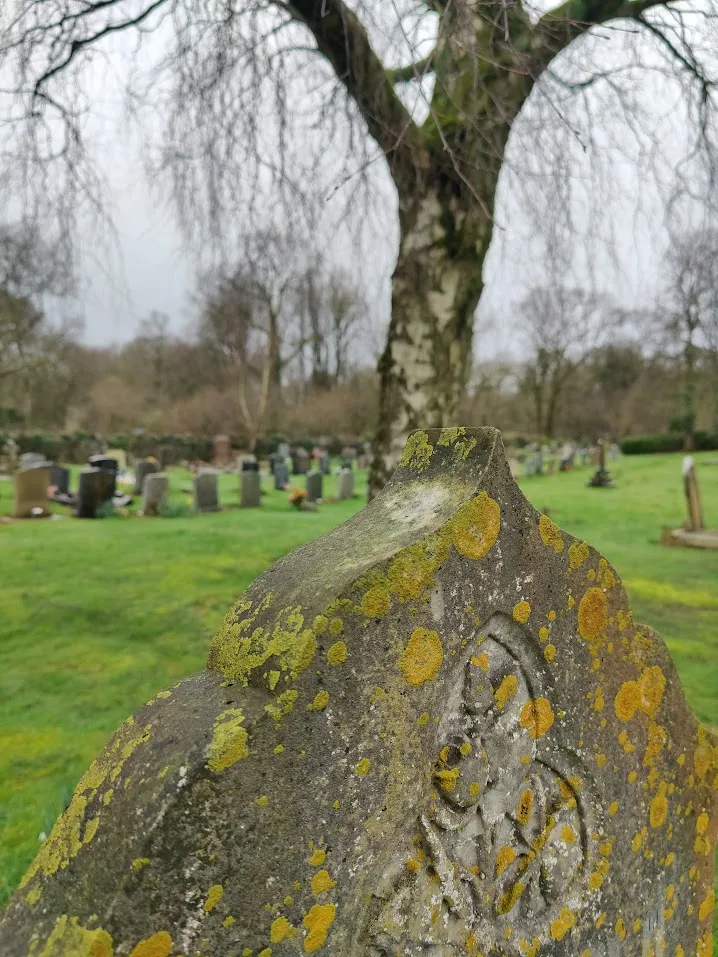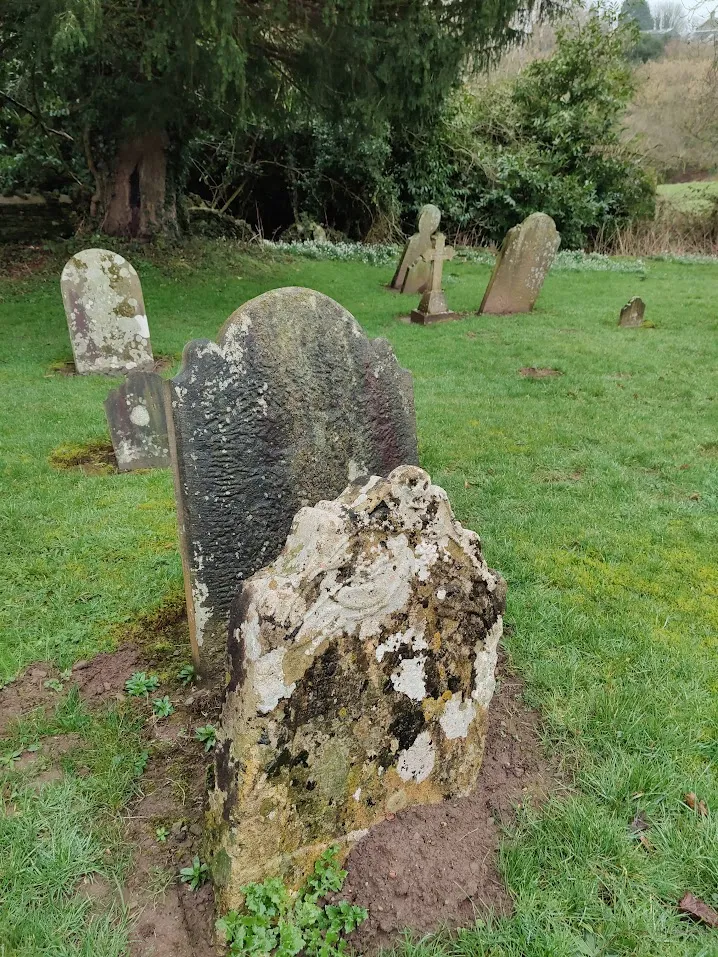The older you get, the more you think about death. Or maybe, faced with the passings of loved ones, you spend a little time dwelling on mortality. Some monks meditate on death to prepare themselves for this inevitability — rotting corpses, the lifelessness of loved ones. Part of our sorrow and suffering is linked to the fact that we age and die — it's when it takes us by surprise and we can't accept it that we truly suffer.

Even the lichen eats the rocks - who are we to think we last forever?
The more I think about death and decay, the more beautiful it becomes. Everything has its time in the world, and everything transmutes to another form of matter. It's okay that after the last person who remembers us dies, we die with them. After thousands and thousands of years of human existence, there are plenty of people who won't be remembered for some grand historical event or infamous wrongdoing.
In the absence of a belief in God, I believe we return to oneness — and for me, that's a very practical, biological return. My flesh, blood, and bones simply feed the earth. I return to dust — and become part of all things. I don't need heaven or an afterlife. I am more than happy to take my place in the universe in this way. What a privilege it was to draw breath at all!
This week I read Thomas Hardy's Afterwards in an anthology and found myself reading it again and again. I used to live in Hardy country in Dorset, UK. It was a place of hedgerows, pheasants and deer, rolling hills, white chalk cliffs, trout streams, cider and horses, dandelions and bunny rabbits.
The speaker in Hardy's poem is more than likely the author himself. It is is deeply reflective of how he'll be remembered afterwards, and for him, it is enough to be remembered for being mindful of nature and thoughtful about the small details that others might not notice. I love how this is enough for him. Hardy, like me, was agnostic, not a devout believer in conventional religion, and like me, turned to nature for meaning.
In this poem he speaks of his love for the "beautiful earth," the "dewfall-hawk" as the sun lowers in the sky, and the animals such as the "hedgehog" that "travels furtively over the lawn" that he "strove" to protect.
This isn't a song about mourning — the "gloom" and the black night when one dies — but instead a fond remembrance of someone who was so enraptured by nature. Each stanza ends with an imagined commentary from those who remember him. "Will they say?" he wonders, and was he "a man who..." This is a quiet echo of remembrance, not a wailing dirge or mournful lament.

gravestones, somerset, UK
It's a reminder, too, that our stay on earth is fleeting — "tremulous," from the first line, as the seasons pass and spring comes again, full of life, just as the night comes too, "mothy and warm." Here is a man who learned from observing nature, contemplating the flight of moths and birds and bigger things like the boundless ocean and endless stars. There is a sense of the sacred here, but it’s a sacred nature, indicative of Hardy’s pantheistic leanings.
It is enough, I read into this poem, that we are part of these cycles of birth and death, and are remembered for our deep love of everything in it. In a culture obsessed with legacy, it is more than enough for me to be remembered in this way — or at least to become biologically part of that which I love.
Afterwards
by Thomas HardyWhen the Present has latched its postern behind my tremulous stay,
And the May month flaps its glad green leaves like wings,
Delicate-filmed as new-spun silk, will the neighbours say,
"He was a man who used to notice such things"?If it be in the dusk when, like an eyelid’s soundless blink,
The dewfall-hawk comes crossing the shades to alight
Upon the wind-warped upland thorn, a gazer may think,
“To him this must have been a familiar sight.”If I pass during some nocturnal blackness, mothy and warm,
When the hedgehog travels furtively over the lawn,
One may say, “He strove that such innocent creatures should come to no harm,
But he could do little for them; and now he is gone.”If, when hearing that I have been stilled at last, they stand at the door,
Watching the full-starred heavens that winter sees,
Will this thought rise on those who will meet my face no more,
“He was one who had an eye for such mysteries”?And will any say when my bell of quittance is heard in the gloom,
And a crossing breeze cuts a pause in its knell,
“That he was one who was born to an early death, and to die in the tomb
Before he had looked his last on the beautiful earth”—
Ah no, it is best that they say, “He was one who used to notice such things.”
For my friend @holoz0r
With Love,

Are you on HIVE yet? Earn for writing! Referral link for FREE account here
All photos taken by me.